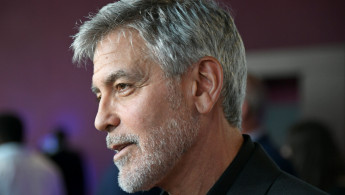Clooney - a longtime campaigner for human rights in Sudan's western region of Darfur - noted that the notorious Janjaweed militias were involved both in abuses in Darfur and in putting down demonstrations last week.
Dozens were killed when paramilitary forces forcibly dispersed a weeks-long sit-in outside the headquarters of the army, which had deposed veteran leader Omar al-Bashir but balked at protesters' persistent demands for a prompt transition to civilian rule.
Clooney, in a joint op-ed piece written with former US official John Prendergast, said that the generals were afraid they would lose out in a deal after they "looted the country with impunity for 30 years".
The pair said that The Sentry, an initiative they founded to track dirty money, had pointed to financial laundering out of Sudan as the crisis intensified.
"Freezing and seizing some of those assets - and blocking some of these officials from the international financial system - would be a major and unutilized point of leverage for peace and human rights," Clooney and Prendergast wrote in Politico.
"By creating significant financial consequences for regime leaders and their commercial collaborators, diplomats from Africa, Europe and the United States will be able to influence the cost-benefit calculus of Khartoum's generals," they wrote.
They voiced fear that US envoys including Tibor Nagy - the top US diplomat for Africa, who is due in Khartoum this week - will see their appeals "fall on deaf ears" without parallel action on the pocketbooks of the generals.
Despite Western criticism of the crackdown, Clooney and Prendergast noted that the generals still enjoy support from Gulf Arab states, China and Russia.
Follow us on Twitter: @The_NewArab





 Follow the Middle East's top stories in English at The New Arab on Google News
Follow the Middle East's top stories in English at The New Arab on Google News
![Israeli forces ordered bombed Gaza's Jabalia, ordering residents to leave [Getty]](/sites/default/files/styles/image_330x185/public/2176418030.jpeg?h=a5f2f23a&itok=_YGZaP1z)

